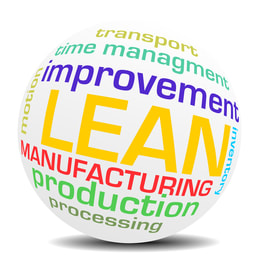Lean
|
Lean Manufacturing, also know as "Lean", is a systematic method for the elimination of waste ("Muda") within a manufacturing process. Lean also takes into account waste created through overburden ("Muri") and waste created through unevenness in work loads ("Mura"). Working from the perspective of the client who consumes a product or service, "value" is any action or process that a customer would be willing to pay for.
Essentially, Lean is centered on making obvious what adds value by reducing everything else. Lean is a management philosophy derived mostly from the Toyota Production System (TPS) and identified as "Lean" only in the 1990s. TPS is renowned for its focus on reduction of the original Toyota seven wastes to improve overall customer value, but there are varying perspectives on how this is best achieved. The steady growth of Toyota, from a small company to the world's largest automaker, has focused attention on how it has achieved this success. It's important to note that Lean was originally developed for the manufacturing line, but also has important implications for office environments. Six Sigma has borrowed many Lean philosophies as well. In fact, Lean Six Sigma is now its own discipline. It uses the best of Lean to provide even greater benefits for process improvement projects. |
Some Common Lean Tools
|
If you're interested in learning more, contact us!
